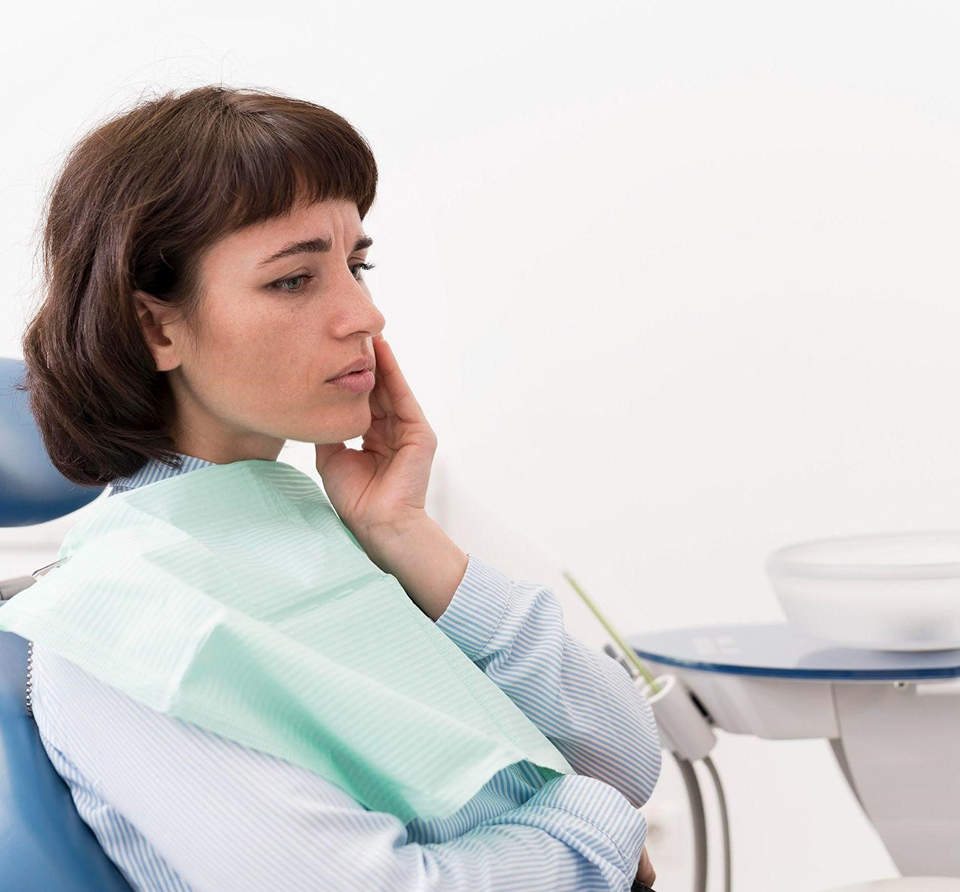Recognizing a Dental Emergency
It's essential to identify when dental issues require immediate care. Common dental emergencies include:
- Severe Toothache: Persistent or intense tooth pain that doesn't subside with over-the-counter pain relievers.
- Knocked-Out Tooth: A tooth that has been dislodged due to trauma.
- Broken or Chipped Teeth: Fractures that expose the tooth's inner layers.
- Lost Fillings or Crowns: Restorative dental work that has fallen loose.
- Abscesses: Infections that cause swelling, pain, and fever.
- Bleeding Gums: Uncontrolled bleeding that doesn't stop with gentle pressure.
If you're experiencing any of these symptoms, it's crucial to seek care from an emergency dentist in Kent as soon as possible.
Step 1: Contacting an Emergency Dentist Near You
When there is a dental emergency, every second counts. Call an emergency dentist near you right away. Many dental practices, including Advance Family Dentistry, set aside time for emergency cases. Be ready to tell the dental staff about your symptoms, when the pain started, and any recent injuries, so they can figure out how urgent your situation is.
Step 2: Initial Assessment and Triage
Upon arrival, you'll be greeted by the dental team and asked to complete any necessary paperwork. The dentist will then perform an initial assessment to determine the severity of your condition, involving:
- Reviewing your medical and dental history.
- Ask specific questions about your symptoms and the incident leading to the emergency.
- Conducting a visual examination of the affected area.
Step 3: Diagnostic Imaging
The dentist may suggest diagnostic imaging, such as X-rays, to fully understand the condition. These pictures give you a close-up look at your teeth, gums, and the bones that support them, which helps doctors make accurate diagnoses and plan treatments. Diagnostic imaging is essential when there has been trauma, an infection, or when the damage isn't immediately apparent.
Step 4: Treatment Plan and Pain Management
The dentist will discuss your treatment options based on the assessment and diagnostic findings. Common emergency dental treatments include:
- Tooth Extractions: Removal of a severely damaged or infected tooth.
- Root Canal Therapy: Treatment to save a tooth with an infected pulp.
- Dental Bonding or Crowns: Restoration of broken or chipped teeth.
- Antibiotics or Pain Relievers: Medications to manage infection and alleviate discomfort.
Caring for pain is the most important thing to do during an emergency visit. The dentist will give you local anesthesia to numb the area needing work so you will be comfortable during the process. For people who are afraid of going to the dentist, there may also be sedation options to assist them in relaxing during treatment.
Step 5: Aftercare and Follow-Up
After the immediate treatment, the dentist will provide instructions for at-home care to promote healing and prevent complications. These may include:
- Avoiding certain foods and beverages that could irritate the treated area.
- Maintaining good oral hygiene practices to prevent infection.
- Taking prescribed medications as directed.
- Scheduling a follow-up appointment to monitor progress and address any concerns.
If your emergency treatment was part of a larger dental issue, such as a broken crown or lost filling, the dentist will discuss long-term solutions to restore your smile's function and appearance.
Tips for Managing Dental Emergencies
To minimize discomfort and safeguard your oral health while waiting for an emergency dental appointment, use these tips:
- For Toothaches: rinse your mouth with warm water, use dental floss to remove any food stuck, and put a cold compress on the area to help with swelling.
- For Knocked-Out Teeth: Retrieve the tooth by the crown (not the root), rinse it gently without scrubbing, and place it in a container with milk or saliva. Seek dental care immediately.
- For Broken Teeth: Save broken pieces and rinse your mouth with warm water. Apply a cold compress to reduce swelling and contact your dentist promptly.
Preventing Future Dental Emergencies
Not all emergency dentistry situations may be avoided, but taking some steps can lower the risk:
- Wear Mouthguards: Take care of your teeth during sports or activities that have a lot of impact.
- Avoid Hard Foods: Refrain from chewing on ice, hard candies, or non-food items.
- Maintain Regular Dental Check-ups: Regular visits to your dentist in Kent can help identify and address potential issues before they become emergencies.
- Practice Good Oral Hygiene: Daily brushing and flossing and regular dental cleanings can prevent cavities and gum disease.
Conclusion
Dental emergencies are sudden and frequently frightening, but understanding what to expect might help you deal with them better. Advance Family Dentistry is dedicated to providing quick, caring service for your urgent dental needs. Please call us if you are having a dental emergency. We're here to help you regain your smile and peace of mind.



